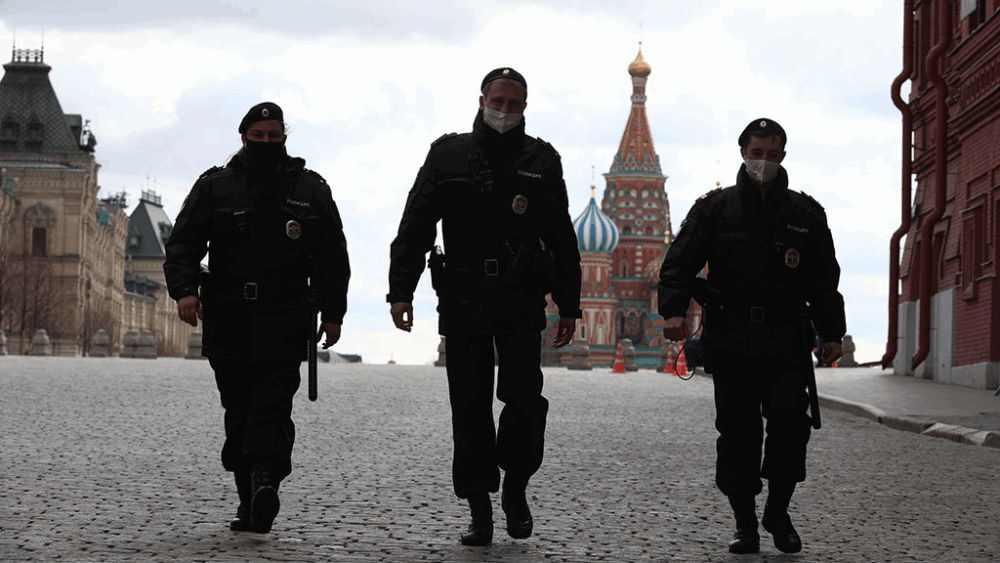Human Rights Activists Seek to End Police Abuse in Russia
A human rights group has appealed to the European Court of Human Rights in an effort to stop police misconduct and falsification in Russian “drug” cases.
The international human rights group “Agora” submitted a report today to the Committee of Ministers of the Council of Europe, highlighting systemic problems in Russia’s anti-drug legislation. The report claims that Russian law enforcement agencies, despite instructions from the ECHR, have not abandoned the practice of “test purchases” of drugs—a tactic human rights defenders call entrapment. Additionally, Agora notes that Russian courts are either unable or unwilling to prevent police falsification in drug-related cases.
Experts recall that exactly one year ago, following the scandal surrounding the detention of journalist Ivan Golunov, the Prosecutor General’s Office promised to review police practices in drug crime investigations and publicly report on them. However, this has not been done.
Agora’s lawyers appealed to the Council of Europe under Rule 9(2), which allows NGOs to inform the Committee of Ministers about issues with states’ implementation of ECHR rulings. The report reminds that in 2012, in the case of “Veselov v. Russia,” the European Court required “adequate and sufficient” safeguards against abuse during test purchases. The court emphasized the need for police to provide “specific and objective” evidence justifying such covert operations. Moreover, the ECHR insisted that investigations be conducted “passively”—meaning if an undercover agent is refused when trying to buy drugs, they should not persist or offer a higher price.
The ECHR decision stressed that unless Russian law enforcement develops a “clear and predictable procedure,” the “lawful deployment of undercover agents” could quickly turn into “incitement to commit a crime.” These recommendations were made eight years ago, but Russia has yet to reform its anti-drug laws, Agora states.
The report cites cases such as “Alexander Borisov v. Russia” (where the applicant complained of police planting drugs), “Vanyan v. Russia,” and “Bannikova v. Russia” (where undercover agents asked suspects to sell them drugs). “All these cases involve provocation: the accused committed a crime that might not have happened without law enforcement intervention,” the document says.
There is still no public regulation for conducting test purchases. In 2015, the Prosecutor General’s Office issued recommendations on investigative activities in drug cases, but the document is classified. “We only have traces of this instruction; nothing is publicly available—we can’t cite the document in court or verify whether investigators and prosecutors are following the recommendations,” said Kirill Koroteev, head of Agora’s international practice.
The Role of the Courts
The report also highlights issues in judicial practice. In drug cases, courts rarely analyze the legality of police actions. Often, a judge is satisfied with an officer’s report claiming “operational information” about a person’s possession of drugs, and no one requests additional evidence—such as phone records or testimony from witnesses not connected to the police. According to the authors, the situation is worsened by the accusatory bias of Russian justice—both investigators and prosecutors are motivated by reporting requirements to pursue a high number of criminal cases.
Proposed Solutions
Agora’s human rights defenders propose creating an independent oversight body, separate from law enforcement, that would report to parliament and monitor police compliance with the law. “We suggest an ombudsman—not for rights, but for duties,” explained Kirill Koroteev. He believes such an ombudsman could thoroughly analyze law enforcement practices and propose solutions to systemic problems.
The issue of flawed Russian anti-drug legislation was widely discussed a year ago during the detention of journalist Ivan Golunov, the report’s authors note. At that time, the Prosecutor General’s Office promised to analyze police work in drug-related crimes and publish the results. According to human rights defenders, this has not happened.
“If someone other than Ivan had been in his place, the police officer would have simply stated there was ‘operational information’—and the court would not have required anything more,” said Arseny Levinson, a legal consultant on drug cases and expert at the Institute for Human Rights. “The journalist was found with three packaged bags and scales, and even though he claimed they were planted, that was enough to charge him with attempted drug dealing. There are tens of thousands of such cases.”
In a conversation with Kommersant, Levinson noted that in the year since the Golunov case, nothing has changed in anti-drug legislation, and Russians are still unprotected from police provocation. “There’s been no breakthrough. The attention to Golunov should have improved the situation, but it actually got worse,” he said. “The tightening of the law continued, and Article 228, Part 2 of the Criminal Code was not softened. The authorities decided to use populist rhetoric to avoid appearing weak and to show they are fighting the drug threat.”



